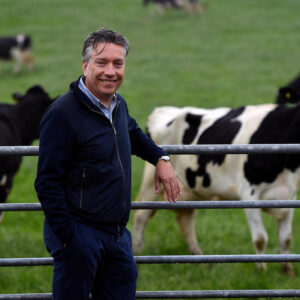Independent review confirms dairy’s vital role in UK diet and sustainability goals

Image: AdobeStock_383945138
Dairy’s role in the UK diet has long been the subject of debate, but a comprehensive new review has brought clarity to the discussion.
Co-authored by independent nutritionists and experts at the Agriculture and Horticulture Development Board (AHDB), the report confirms dairy’s essential contribution to healthy diets while underscoring the sector’s progress towards sustainability targets.
The study follows a similar evidence-based review on red meat and aims to provide policymakers, industry leaders, and consumers with a balanced, science-led foundation for future dietary and environmental strategies.
Kate Arthur, head of nutrition and Health at AHDB, emphasised dairy’s irreplaceable role in supplying key nutrients across all life stages.
“Dairy is a cornerstone of UK nutrition, supplying essential nutrients like calcium, iodine and high-quality protein through all stages of life,” she said. “By providing a science-led foundation for marketing and policy, we hope that this report will strengthen the sector’s position in debates on health and sustainability.”
The review highlights that dairy is not only nutrient-dense but also affordable, making it a practical solution to widespread nutrient shortfalls in the UK. Importantly, the report stresses that considering dairy as whole foods is more beneficial than focusing solely on individual nutrients, reflecting the growing consensus among nutritionists that food synergy matters more than isolated components.
On the environmental front, the report consolidates evidence showing that UK dairy farming is among the most efficient and sustainable globally.
Rachael Madeley-Davies, AHDB’s head of environment, noted: “The role of dairy in the UK has received plenty of media attention and debate over the last few years, but the evidence around its impact on the environment is disjointed and often lacking. Our review brings together the evidence to show that UK dairy farming is not only efficient but actively working towards sustainability targets, highlighting that it is among the most efficient and sustainable globally, with emissions intensity down 22% since 1990.”
The findings point to well-managed livestock systems delivering more than food: carbon storage, habitat management, and improved soil health are among the environmental benefits that align dairy production with the UK’s net zero ambitions.
The report situates dairy within the UK’s Eatwell Guide, which recommends dairy and fortified alternatives as important sources of protein, calcium, and vitamins within a diverse, plant-rich diet.
Transitioning to diets aligned with the Eatwell Guide could reduce greenhouse gas emissions by up to one-third, while improving public health outcomes. Yet adherence remains strikingly low, with fewer than 0.1% of UK consumers following the guidelines.
Internationally, the Food and Agriculture Organization (FAO) and World Health Organization (WHO) recognise dairy as a nutrient-dense, affordable food group that supports dietary adequacy, particularly for vulnerable populations such as children, adolescents, pregnant women, and older adults. The AHDB report echoes these principles, warning that significant reductions in animal-sourced foods could exacerbate existing protein and micronutrient deficiencies.
The executive summary calls for a balanced approach to tackling climate change, food security, and public health — one that values dairy’s nutritional benefits while promoting sustainable farming. Sustainable diets, it argues, must balance health, environmental, economic, and social factors to avoid unintended consequences.
By consolidating evidence across health and environment, the report positions dairy as both a building block of healthy diets and a contributor to the UK’s sustainability goals. For the food and drink industry, the findings provide a robust, science-backed narrative to inform consumer communication, policy debates, and future innovation.






